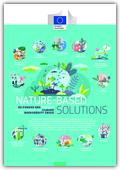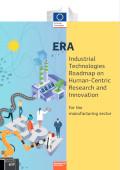Filter by
All publications (352)
RSS
WP 2025/01 – This study explores the role of the EU Framework Programme (FP) in supporting and accelerating research and development, market uptake and diffusion within mRNA technology and green hydrogen.

WP 2025/02 – This paper examines the drivers of EU labour productivity before and after the 2007 financial crisis, across goods and services sectors, tangible and intangible assets, and Information and Communication Technologies (ICT) and non-ICT tangibles.

This policy brief shows how using the concepts of complexity and relatedness can enhance the design of more impactful, data-driven policies that foster growth and address societal challenges.

This literature review provides short summaries of recent scientific articles discussing the challenges of 'greening research'.

The impact of climate change and biodiversity loss are most acute in polar regions. This factsheet helps understand, predict and sustainably steward the vulnerable components of Earth’s climate system and the biosphere under a framework of cooperation, multilateralism, openness and reciprocity.

NBS must benefit biodiversity and support the delivery of a range of ecosystem services.

Issue 2024/Q1-2 – This edition aims to explore alternative R&I funding models, such as lotteries, to investigate the arguments in favour or against these models.

Cooperation in research and innovation between the European Union (EU) and Latin America and the Caribbean (LAC) is gaining momentum, with nature-based solutions (NbS) emerging as a central priority.

2024 marks 40 years since the launch of the EU’s first funding programme dedicated to science, research and innovation. This booklet presents a symbolic 40 stories to illustrate the breadth of R&I made possible through EU R&I funding and some of the results achieved over the last 40 years.

R&I policy recommendations on how to foster human-centric outcomes in technology development and adoption, such as improving workers’ safety and wellbeing, upskilling or learning.
